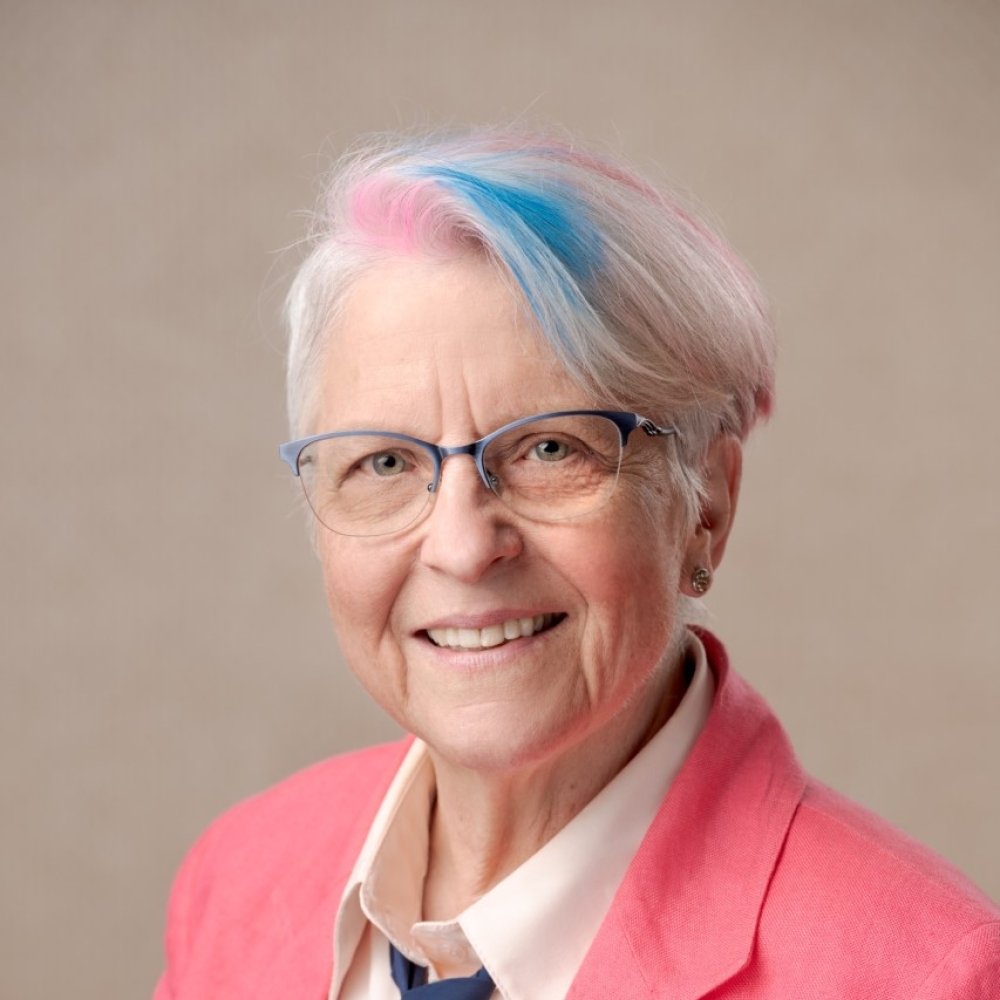
Mykol C. Hamilton
H.W. Stodghill, Jr. and Adele H. Stodghill Professor of Psychology, Emerita
Education
BA: Psychology, Stanford University
MA: Women's Studies, San Jose State University
MA: Social Psychology, UCLA
PhD: Social Psychology, UCLA
BIOGRAPHY
In 2005, Mykol Hamilton was named Stodghill Professor of Psychology at Centre, where she has taught since 1988. She holds a B.A. in psychology from Stanford University and an M.A. in women’s studies from San Jose State University. She earned M.A. and Ph.D. degrees in social psychology at UCLA.
Hamilton teaches courses such as Law and Human Behavior, Psychology of Women, Social Psychology, and Research Methods.
Some of her research in the last 15 years has focused on the social psychology of jury selection and changes of venue in high-pretrial publicity cases. The research stems from legal consulting and expert witness work she began in 2005. She is a member of the American Society of Trial Consultants (ASTC) and is the Research Director of the ASTC Foundation.
Hamilton’s collaborative psychology of law research with students has resulted in publications, presentations, and posters. She and her research teams won first place at ASTC’s national conference for three years running. She has been quoted in newspapers around the world concerning the difficulty of choosing unbiased jurors in the “Bridgegate” trial of two of New Jersey Governor Chris Christie’s aides.
Hamilton also has an extensive history of research and publications on gender issues. She has published articles and book chapters on sex bias in language and its effects on girls and women’s attitudes and aspirations. She co-authored three articles on gender representations in children’s picture books based on work done with David Anderson (Centre professor of economics). She has also studied son vs. daughter preferences in the United States and elsewhere.
Her scholarly interests focus on legal psychology (e.g., changes of venue in highly publicized cases, juror bias, jury selection/voir dire, jury questionnaires,“prehabilitation”—a term coined in her research lab), and the psychology of women (female under-representation and father invisibility in children’s books, sex bias in language, son/daughter preference).
The research includes AIDS issues related to people's attitudes toward homosexuality. She has frequently delivered papers at scholarly conferences, including an invited address on her research on AIDS risk perception. Co-authored with students: “The Ubiquitous Practice of “Prehabilitation” Leads Prospective Jurors to Conceal Their Biases” co-authored with Florida professor Kate Zephyrhawke: “Revealing Juror Bias Without Biasing Your Juror: Experimental Evidence For Best Practice Survey And Voir Dire Questions.” Co-authored with Professor of Economics David Anderson: "Gender Role Stereotyping of Parents in Children’s Picture Books: The Invisible Father”
AWARDS/GRANTS
- Centre Scholar
PROFESSIONAL AFFILIATIONS/MEMBERSHIPS
- American Society of Trial Consultants
- Association for Women in Psychology
- Kentucky Academy of Science
COURSES TAUGHT
- Law and Human Behavior
- Psychology of Women
- Research Methods Applied Psychology
- Gender, Power, and Communication
- Social Psychology
PUBLICATIONS
- Anderson, D.A., Hamilton, M.C., Gilkison, G.M., & Palmer, S.K. (2021). Gender socialization, family leadership, and the invisible father in children's literature. Journal of Family Issues, https://doi.org/10.1177/0192513X211058820.
- Hamilton, M. C., & Zephyrhawke, K. (2016). More techniques for uncovering juror bias before it too late. The Jury Expert, 28(3). http://www.thejuryexpert.com/2016/12/more-techniques-for-uncovering-juror-bias-before-its-too-late/
- Hamilton, M.C., & Zephyrhawke, K. (2015, November). Revealing juror bias without biasing your juror: Experimental evidence for best practice survey and voir dire questions. The Jury Expert, 27(4). http://www.thejuryexpert.com/2015/12/revealing-juror-bias-without-biasing-your-juror-experimental-evidence-for-best-practice-survey-and-voir-dire-questions/
- Hamilton, M.C., Linden, E., Pitt, M., & Robbins, E. (2014, August). The ubiquity of premature rehabilitation: How prehabilitation prospective jurors to hide their biases. The Jury Expert, 26(3), 48-65. http://www.thejuryexpert.com/2014/08/the-ubiquitous-practice-of-prehabilitation-leads-prospective-jurors-to-conceal-their-biases/
- Hamilton, M. C., Anderson, D., Broaddus, M., & Young, K. (2006). Sex stereotyping and under-representation of female characters in 200 popular children picture books: A 21st-century update. Sex Roles, 55, 757-765.
- Anderson, D., & Hamilton, M. C. (2005). Children's picture books: Where are the dads? Sex Roles, 52, 145-151.
- Lambdin, J. R., Greer, K. M., Jibotian, K. S., Wood, K. R., & Hamilton, M. C. (2003).The animal = male hypothesis: Children's and adults' beliefs about the sex of non-sex-specific stuffed animals. Sex Roles, 48, 471-482.
- Hamilton, M.C. (1997). The huwom race: Sexist language as a tool for dominance. In Kommunikation von geschlecht: Communication of Gender, F. Braun & U. Pasero (Eds.). Kiel, Germany: Zentrum fÌ_r interdisziplinÌ_re Fravenforschung der Christian-Albrechts-UniversitÌ_t zu Kiel.
- Hamilton, M.C., Hunter, B., & Stuart-Smith, S. (1992). Jury instructions are worded in the masculine generic: Can a woman claim self-defense when "he" is threatened? J. Chrisler and D. Howard (Eds.), New directions in feminist psychology. New York: Springer.
- Hamilton, M.C. (1991). Masculine bias in the attribution of personhood: People = male, male = people. Psychology of Women Quarterly, 15, 393-402.
- Hamilton, M.C. (1988). Masculine generics and misperception of AIDS risk. Journal of Applied Social Psychology, 18, 1222-1240.
- Henley, N.M., Hamilton, M.C., & Thorne, B. (1985). Woman speak and man speak: Sex differences and sexism in communication, verbal and nonverbal. In A. Sargent (Ed.), Beyond sex roles 2nd ed.), pp. 168-185. New York: West Publishers. (Reprinted in Sheila Ruth's Issues in feminism: A first course, Mayfield, 1990, and in James Henslin's Down-to-Earth Sociology, 1991, 1993).
- Parks, B. J., Bogart, K., Reynolds, D.F., Hamilton, M.C., & Finley, C. J. (1979). Sourcebook of measures of women's educational equity. Palo Alto: American Institutes for Research.
